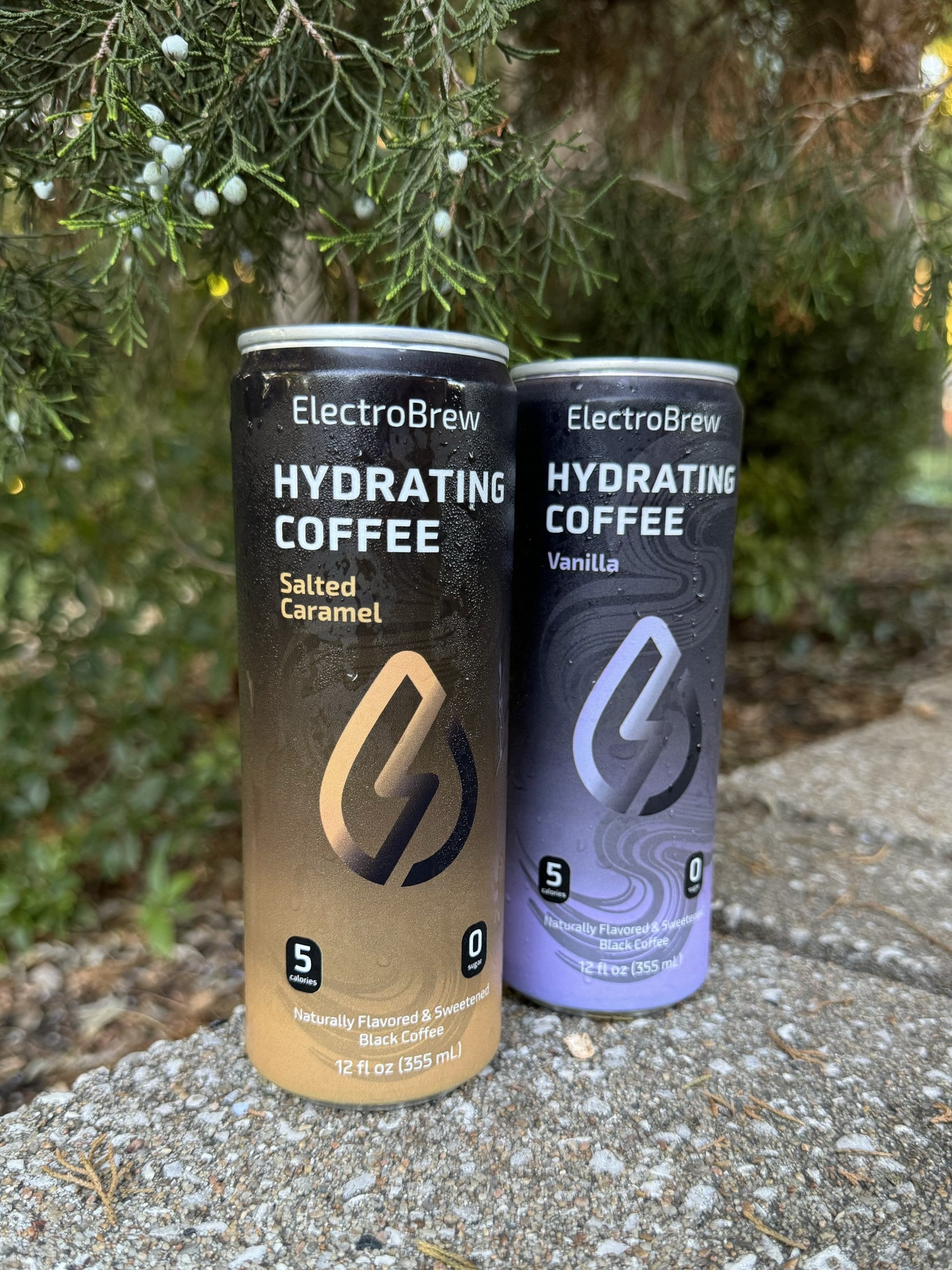The Science

Why Infuse Electrolytes
Coffee's Been Waiting
Caffeine in coffee acts as a diuretic, impacting fluid levels and electrolyte balance. Additionally, its potassium content is beneficial but could pose challenges when other electrolytes are depleted by caffeine.
Research published in the "Journal of Applied Physiology" highlights the importance of maintaining electrolyte balance in the face of diuretic substances like caffeine. The study suggests that the judicious use of electrolyte supplementation, when consuming caffeinated beverages, can help in preserving athletic performance and preventing dehydration.
This insight underscores the critical role of a comprehensive hydration strategy that includes monitoring and adjusting electrolyte intake in conjunction with caffeine consumption to optimize physiological function and health.
Magnesium
Coffee's Perfect Partner
Magnesium plays a crucial role in ATP (adenosine triphosphate) conversion processes, thereby facilitating energy production and storage within the body.
Energy Production and Use: Magnesium facilitates the creation and utilization of ATP, which is used by the body for all forms of biochemical energy needs. Caffeine increases the demand for energy by stimulating neuronal activity and metabolism. In this way, adequate magnesium levels can support the increased energy needs driven by caffeine consumption.
Neurological Impact: While magnesium does not directly counteract caffeine's blockade of adenosine receptors, it plays a role in regulating neurotransmitter release and can affect the nervous system's overall excitability. Magnesium has a calming effect on the nervous system and can help mitigate some of the jitteriness or anxiety that high doses of caffeine can cause.
Thus, while magnesium and caffeine affect different pathways (energy production/storage and neurotransmitter inhibition, respectively), their effects are interrelated. Adequate magnesium might help support the body's increased energy demands due to caffeine's stimulatory effects and could potentially moderate some of caffeine's adverse effects on the nervous system by stabilizing neuronal activity.
Potassium
Working Synergistically With Sodium
Potassium is essential for maintaining fluid balance within the body to ensure optimal hydration levels. It plays a pivotal role in stimulating the metabolism of proteins and carbohydrates, which is crucial for the efficient conversion of nutrients into usable energy. Potassium is also integral in sustaining muscle energy by facilitating the utilization of glycogen stores. This process is vital for endurance and performance during physical activities. Additionally, potassium is critical for enabling normal muscle contraction, a fundamental process for movement and physical exertion.
According to a study published in the "American Journal of Clinical Nutrition," adequate potassium intake is associated with improved muscle efficiency and reduced fatigue, highlighting its importance in both daily and athletic performance.
Sodium
The Indispensable Electrolyte
Sodium plays a critical role in counteracting the diuretic effects of coffee by aiding in the maintenance of adequate fluid balance and enhancing performance output. Its specific application extends to working in coordination with other electrolytes to optimize physiological functions. Sodium is pivotal for regulating core body temperature, especially during strenuous activities where thermoregulation is vital. By reducing vasoconstriction, it ensures optimal blood flow and nutrient delivery to tissues. Additionally, sodium activates the thirst response, a crucial mechanism for preventing dehydration. It safeguards against water intoxication and hyponatremia, conditions that can arise from imbalanced electrolyte and fluid levels, particularly in the context of excessive coffee consumption.
Furthermore, sodium is essential for proper muscle contraction and nerve impulse transmission, foundational for both daily movements and athletic endeavors. It also plays a key role in maintaining normal blood pressure and regulating heart rate, further illustrating its critical function in cardiovascular health.
A study highlighted in the "Journal of Sports Science" underscores sodium's efficacy in enhancing athletic performance and mitigating the adverse effects of caffeine-induced diuresis, emphasizing its importance in sports nutrition and hydration strategies.
Controversy
WE LIKE SODIUM
There has been a pretty lengthy history that is important to understand when it comes to electrolytes, and specifically sodium.
Here's Why
The U.S. Food and Drug Administration (FDA) has recently renewed its efforts to reduce the amount of salt consumed by Americans in an attempt to lower the risk of heart disease. The agency recommends that adults consume no more than 2.3 grams of sodium per day.
A large population study called The Intersalt Study, which analyzed data from 48 global populations, found that dietary salt intake was not linked to the prevalence of high blood pressure. In fact, the population with the highest salt intake had a lower median blood pressure than the population with the lowest intake. It is likely that other factors, such as a sedentary lifestyle and a diet high in processed foods, contribute to poor health outcomes rather than salt intake alone
Overall, while it may be reasonable to suggest that SOME individuals reduce their salt intake, it is important to consider the limitations and biases of the evidence used to support blanket recommendations for the entire population. It is also crucial to recognize the potential role of other factors, such as diet and lifestyle, in influencing health outcomes.
